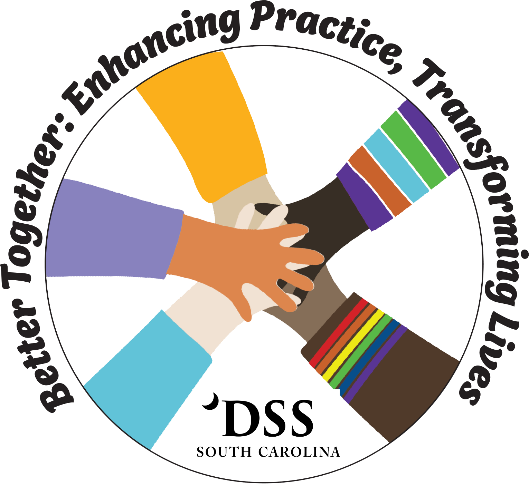Here are some terms and acronyms you may see as a kinship caregiver and what they mean.
Board Payments
This is the monthly payment that a licensed foster care parent can receive to help cover the expenses of a child in their care. Payment is based on the child’s age and the money can be used to cover food, clothing or any other additional expenses related to providing care for the child.
Case Manager
This is the person assigned to work with the kinship caregiver when SCDSS is involved. The case manager is responsible for the child’s well-being, including making sure the child is safe and helping the kinship caregiver understand and meet the child’s needs.
Confidentiality
In kinship care, this refers to the expectation that you and others involved in the child’s case will respect the privacy of the child and parents. For example, you cannot freely discuss the child’s problems with everyone you know. But you can provide information to the people who need it. Your case manager can help you understand what is allowed.
CPS
Stands for Child Protective Services. This is the division of the S.C. Department of Social Services that investigates and responds to reports of child abuse and neglect.
Fictive Kin
This term is used specifically to describe a kinship caregiver who is not related to the child by blood or by legal means (like marriage). Someone who is fictive kin is usually a close family friend, neighbor, god parent, teacher, etc. that has a relationship with the child.
Public Kinship Care
This refers to kinship care when SCDSS has become involved. You may also hear this called formal kinship care. When SCDSS has legal custody, the child remains in the home with the kinship caregiver. The agency is then able to provisionally license the family while working towards licensure within the 60-90 timeframe. The family will receive a monthly board payment and case management to enhance the child’s stability while living with the kinship caregiver.
Private Kinship Care
This is care worked out between family members or friends and the child’s parents—without SCDSS involvement. You will also hear it called informal kinship care. People providing private kinship care will not have a case manager but may be able to apply on their own for government assistance programs. A good resource for these caregivers is www.scthrive.org.
Kinship Care Provider
This describes a person who is taking responsibility for the care of a child. A kinship care provider may be related to the child by blood, marriage, adoption, godparent, neighbor, teacher or may be a close family friend.
Licensed Foster Parent
This refers to a person who has completed the S.C. requirements to provide foster care. Kinship caregivers who become licensed foster parents for children in SCDSS custody receive the same benefits and services as licensed foster parents who are not kinship caregivers.
SC Thrive
This is a non-profit organization that works with anyone living in S.C. They can provide help to access many services including food, health care, mental health treatment, prescription drugs and financial support. If you are an informal (private) kinship care provider, SC Thrive is especially helpful because you won’t have the services of a case manager. Information is at www.scthrive.org.
SC Voucher
This program helps low-income working parents and relative caregivers afford child care. Vouchers may not pay the full cost. Families may be expected to make a co-pay. Information is available at www.scchildcare.org.
SCDSS
Stands for S.C. Department of Social Services. This state agency’s mission is to promote the safety, permanency, and well-being of children and vulnerable adults, helping individuals achieve stability and strengthening families.
SCDHHS
Stands for S.C. Department of Health and Human Services. This state agency manages Medicaid in South Carolina.
SNAP
Stands for Supplemental Nutrition Assistance Program, a federally funded program to help low-income individuals and families afford food. It was formerly known as food stamps.
TANF
Stands for Temporary Assistance for Needy Families. This federal program provides eligible families with a monthly stipend to help pay bills, as well as training and job preparation, help finding a job, and other support services.
WIC
This is the simple way to refer to the Special Supplemental Nutrition Program for Women, Infants, and Children. This federal program promotes and protects the health of low-income mothers, babies and children up to their 5th birthday. WIC provides nutritious food, information on healthy eating including breastfeeding and referrals to health care.

